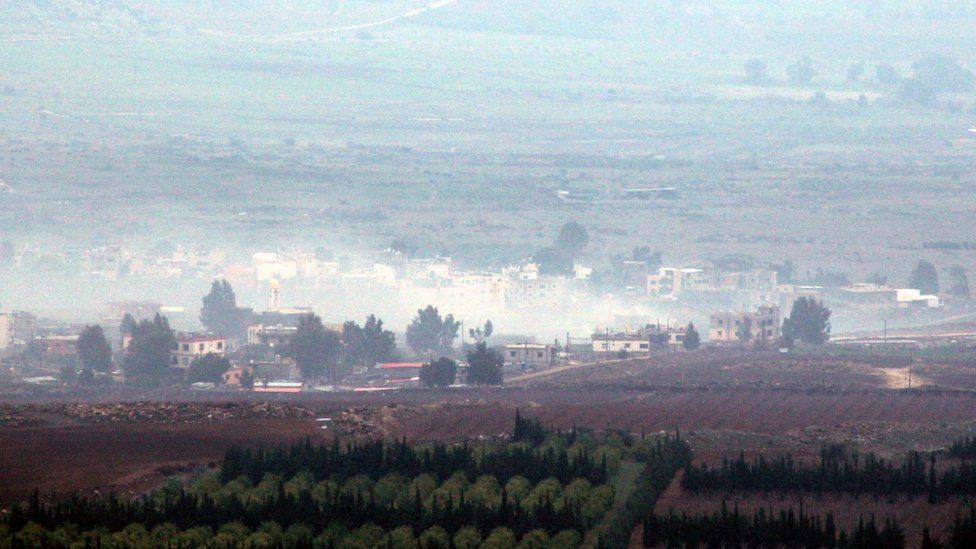Hezbollah bomb attack targets Israeli border patrol
- Published

A bomb attack on an Israeli army vehicle close to the Lebanon border has drawn a response from Israel, which shelled Lebanese territory.
The militant Hezbollah movement said it had detonated a large explosive device beside armoured vehicles patrolling the disputed Shebaa Farms area.
Lebanese media said the retaliatory shellfire hit the village of Wazzani.
Tensions between Israel and Hezbollah were heightened by the killing of a prominent militant in Syria last month.
Hezbollah vowed to hold Israel to account for the killing of Samir Qantar in a missile strike in the capital Damascus. Israel's government welcomed news of his death, but did not confirm it was responsible.
'Vehicle destroyed '
An Israeli military spokesman said two armoured vehicles, one of them a bulldozer, were targeted in Monday's attack on a road in the western Mount Dov or Shebaa Farms area, a tract of land between the borders of Israel, Lebanon and Syria.
No soldiers were killed in the attack but that there were injuries, a military source told the BBC.
Lebanese media reported that shells fired by Israeli artillery in response hit Wazzani and nearby areas, and that there were reports of injuries.
What are the Shebaa Farms?
- The farms cover an area about 14km (9 miles) long and 2.5km wide, to the south of the Lebanese village of Shebaa, on the western slopes of Mount Hermon/Jabal al-Sheikh
- The area has been a flashpoint for violence since Israeli forces withdrew from Lebanon in 2000
- Until the 1967 Middle East war, the farms were under Syrian control, but the farmers had Lebanese citizenship
- The area was captured by Israel and annexed in 1981 along with the rest of the Golan Heights, a move not internationally recognised
- The Lebanese government says the farms are part of its territory, a claim backed by Damascus, but not the UN
- Hezbollah has consistently used Israel's presence in the area as justification for retaining its weapons and continuing "resistance"
Hezbollah subsequently declared that a cell named after Qantar was behind the bombing.
"The martyr leader Samir Qantar group detonated a large explosive device on an Israeli patrol in the Shebaa Farms... which destroyed an Israeli vehicle... and injured those inside it," a statement said.
Following Qantar's death, Hezbollah's leader Hassan Nasrallah said it reserved "the right to respond to this assassination at the time and place of our choosing".
Qantar, a Lebanese Druze, spent almost 30 years in prison in Israel for a notorious attack in which four people were killed, but was released in 2008 in an exchange with Hezbollah.
He later joined the Shia Islamist movement and at the time of his death was involved in "resistance" against Israel's occupation of the Syrian Golan Heights.
- Published28 January 2015
- Published15 March 2016